All images courtesy of The Whitehatters, unless otherwise stated
Trigger warning: Mentions of suicide and transphobia
“Do you want a living daughter or a dead son?” Ms Chua Moey Hiang’s husband asked her.
It was that fateful day almost nine years ago when Ms Chua’s daughter revealed that she was transgender. At a loss, the mother of three children was unsure whether to accept her child for who she is.
“Will it be a sin to support my child?” Ms Chua wondered aloud to an audience at Inspire Church near Farrer Park.
Together with about 80 people on Jan 15, she was at a closed-door dialogue on LGBTQ issues organised by The Whitehatters, a non-governmental organisation that provides safe spaces for conversations among Singaporeans on issues typically deemed as sensitive, such as religion.
Besides Ms Chua, three pastors were also on its panel: Miak Siew, Chang Tou Chen, and Ian Toh.
Most participants here were from Free Community Church or Truelove.Is of 3:16 church, churches that have started conversations around LGBTQ issues with different methods and perspectives. Some Muslim observers also sat in to gauge if their community could hold such a dialogue.
Initially, I hesitated when interfaith advocate Mohamed Imran Mohamed Taib invited me to cover this event, titled “Can I be a queer Christian?”.
Penning my thought on anything gender-related has never been a forte because it’s a prickly subject, with the risk of getting criticised if one isn’t tactful enough. It’s also admittedly a topic that is hard to approach while juggling between changing social norms and my Christian doctrine, both comfortably contradictory to each other.
The Church taught me that homosexual behaviour is unacceptable. Still, at the same time, society is increasingly tolerant of the homosexual way of living.
Even the government appeared to have kept itself at arm’s length by not funding this dialogue. An oddity I observed given that such sessions organised by non-governmental organisations are commonly supported by the Ministry of Culture, Community, and Youth’s Harmony Fund, as part of the Ask Me Anything series.
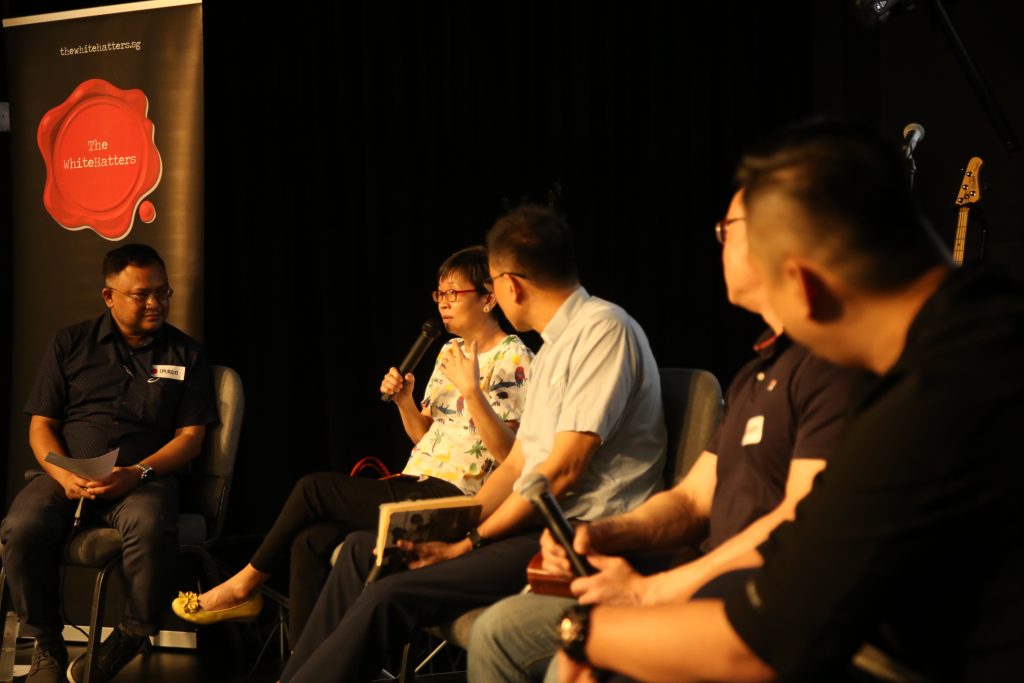
But I shouldn’t be ignoring LGBTQ issues anymore. The same goes for churches, as their flock had spoken. A 2019 study by the Institute of Policy Studies with 4,015 respondents showed that 51.1 per cent of Christians were amenable to their religious leaders being vocal about LGBTQ issues.
Also, given that there have been stories of LGBTQ people facing hurt within churches, it’s imperative that the Christian community take steps to improve the situation.
At a personal level, Ms Chua’s story was also intriguing because, like me, she comes from a conservative Chinese church. If my experience is representative, such churches tend to avoid broaching the issue, especially on the pulpit.
To wit, the only time my church touched on an LGBTQ issue was in 2018 when there was considerable debate in society over section 377A of the penal code which criminalises gay sex. My pastor merely shared with the congregation a statement issued by the National Council of Churches of Singapore to retain the law. Beyond that, nothing else was said.
It might not even be a case of “not addressing the elephant in the room”. Some churches don’t have any experience of having LGBTQ individuals within their midst. Evidently, the less you see the oppressed, the more convenient it was to ignore their plight.
Disagreeing respectfully, but
For Pastor Toh from Truelove.is, his interpretation of the Bible is that homosexual activities are a sin, even as he acknowledged that homosexual feelings are temptations and not sinful.
But the path Pastor Miak and his Free Community Church took is one of celebration: sex can be an expression of love between two people and this should be celebrated in a loving monogamous relationship—homosexual or heterosexual.
Right from the onset, Imran had made the dialogue’s objective clear. The session wasn’t for anyone to agree to anything but to start a civil conversation on the LGBTQ community.
The dialogue was expected to be heated, and perhaps this was why Imran became its moderator. As a non-Christian and an interfaith advocate who deals with sensitive race and religious issues, he could be a trusted umpire.
… with some common ground
Both groups might be at odds regarding pastoral approaches and fundamental tenets of the faith. Still, there weren’t any unnecessarily testy exchanges nor were participants talking over one another to assert superiority over an argument. It was an excellent start to a meaningful conversation.
“You have a different understanding of Jesus, and he has a different understanding of Jesus. Wait till you hear the Muslim’s understanding of Jesus—suddenly both of you will agree with each other,” Imran quipped, to the laughter of everyone in the room where he moderated the dialogue.
Although the two groups have fundamental differences in approaching LGBTQ and homosexuality issues, they converged on one point: the conversation must continue, and churches should not reject LGBTQ folks from their chapels.
“We welcome everyone into our church space but I don’t have any prescription.
The best I know at this point may not be helpful in this space.”
Pastor Ian Toh
Pastor Toh had earlier clarified that homosexual acts and same-sex marriages are sinful behaviours based on biblical teachings. Later, at an interview with the press, he asserted the theological position by Truelove.Is is no different from the National Council of Churches of Singapore, which states that homosexual behaviour is wrong and 377A ought to remain.
But he drew a line between theology and pastoral support. Here is where Pastor Toh’s Christian ministry differs from many hyper-conservative churches. Instead of disregarding homosexuality as an issue that should never see the light of day, Pastor Toh believes in supporting people who need help with their experience of same-sex attraction.
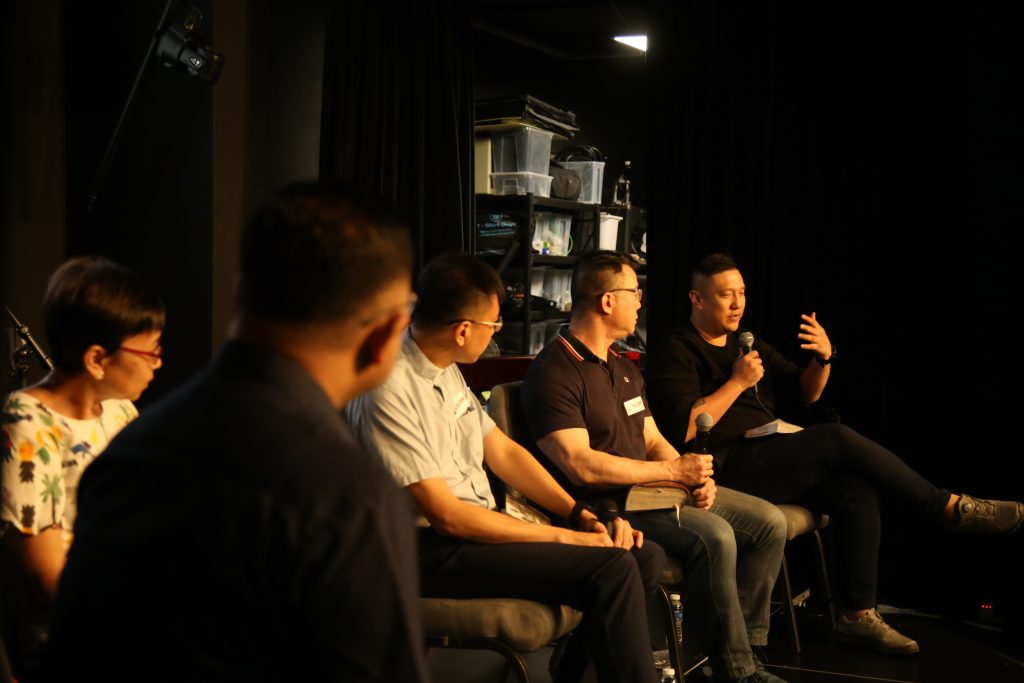
But Truelove.Is’s way of support is not without controversy. Some accused them of using “conversion therapy”, which supposedly changes or suppresses one’s sexual identity, and causing trauma for the religious LGBTQ folks. The group has since denied this allegation.
Pastor Toh’s group wanted to help these people but not deviate from biblical teachings, so it resorted to an approach that shares the stories of ex-LGBTQ Christians, which was seen as “conversion therapy” by some segments. Yet, we shouldn’t ignore trauma if this results from that approach.
Maybe time will tell if Pastor Toh can propose a better solution—three years into establishing Truelove.Is, Pastor Toh admitted that he’s still new to the homosexuality space.
“Instead of coming out with what is right or wrong immediately, I feel grieved by their struggles and challenges. If you ask me if I have an answer now, I don’t have one. I’m still on a journey to process how this may look like that will reconcile with my faith,” he said.
“It’s not so straightforward … So I want to be careful not to take one approach as the universal approach to everyone … We are human beings who try our very best to do whatever we can with whatever we know. I want to respect that space.”
Churches as a space for all
“We have created this sense of unworthiness, shame, and self-hatred that leads to a lot of problems in many areas.
People are leaving the church, people are actually afraid of stepping into the church.”
Pastor Miak Siew
Pastor Miak shared that there were LGBTQ ex-Christians who were traumatised and deeply hurt by churches that they wouldn’t step into Free Community Church, even though it’s an LGBTQ-affirming one. There were transgender people, for example, who were brave enough to enter the church but couldn’t muster the courage to reveal their gender identity due to fear of rejection, which they previously faced.
He also shared an anecdote: a gay member of his church has a brother and sister-in-law who attended one of Singapore’s largest anti-LGBTQ churches, which the member declined to name.
“When his niece was born, the brother and sister-in-law said that they can’t have his partner come over (to their home for family gatherings) and don’t want his partner to be interacting with their baby daughter either.”
“These are the things that happen when church teachings translate into real-life experiences; the rejection of families. I don’t think the church actually taught them to stop interacting with family members who are LGBTQ. But what translates into reality is the rejection of families.”
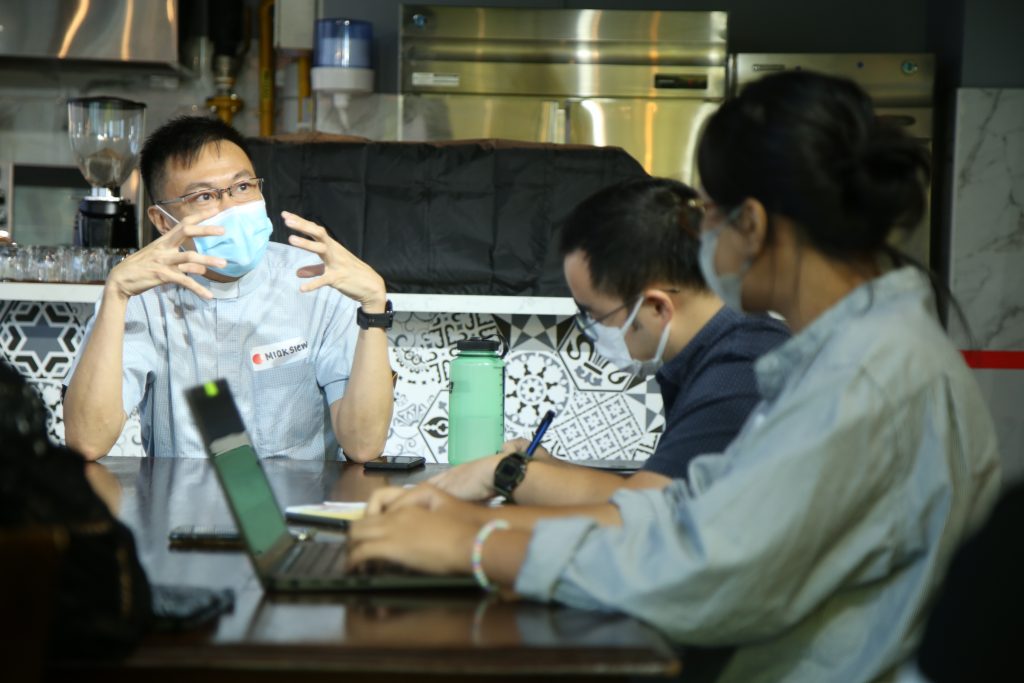
Pastor Miak warned that the Christian community must be careful not to be the one causing harm. If the church doesn’t provide a safe space for them to be loved, they will find that elsewhere. There have been stories of LGBTQ folks resorting to vices such as drugs to substitute the love and affirmation they couldn’t get from churches, and numb the pain they experienced from being rejected.
However, there are optimistic signs that churches are slowly learning more about the LGBTQ community and ways to reach out to them. Pastor Toh revealed at a doorstop interview with the press that the Chinese churches, typically more conservative, have approached him to open more of such dialogues. This month, for instance, his ministry will be holding a dialogue with a few hundred church leaders.
Is it possible to have a civil conversation on LGBTQ issues?
The pastors weren’t the only ones sharing their views and stories. Other participants, too, shared their lived experiences during the small group discussions which lasted more than an hour. One of them, Amy*, shared how a friend took her life because, among many reasons, she felt rejected as an LGBTQ individual.
There was also Brandon*, who, as an LGBTQ individual never felt he truly belonged to the church he grew up in because it didn’t give him sufficient pastoral support while he struggled with his queer identity.
With many events now held online due to the pandemic, it’s not every day that masked-up individuals talk things out face to face. After all, the internet can be a toxic place to discuss sensitive issues, with echo chambers and anonymous accounts commenting without the need to stand by them.
Without a moderator in the virtual world to ensure a civil discourse, discussions can turn toxic.
Not here though. Through a slide projected on a screen, the participants were reminded to be respectful, honest, and listen to each others’ stories with an open mind. There were also facilitators from The Whitehatters in each group to preside over the discussions. It also helps that people tend to be more mindful and responsible with what they say in-person since others can see who they are, thus ensuring greater accountability.
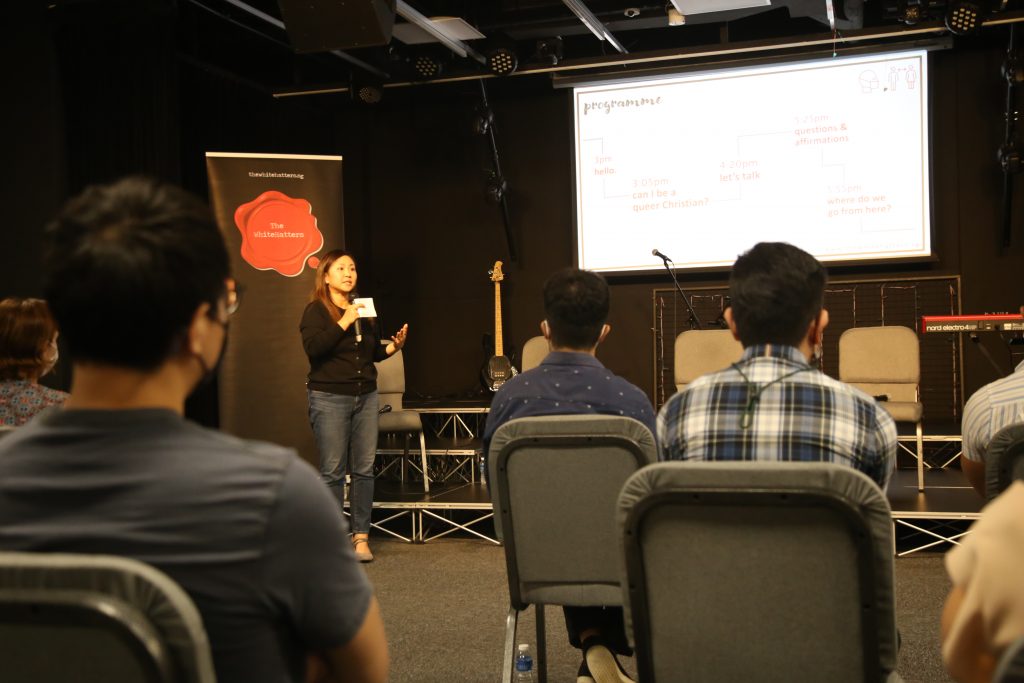
A trained counsellor was also on-site to assist any participants who needed help, especially if they were re-traumatised by their sharings of stories with their group members.
Walking around to observe the dynamics within various groups, I saw participants speaking in hushed tones, nodding their heads solemnly and acknowledging the poignant stories shared. At the halfway mark, I saw one of them gave herself a time-out when she was overwhelmed by the lived experiences shared by her group members.
No answers, but at least the ball has started rolling
That afternoon, anyone looking for concrete answers to reconcile faith and queerness might be disappointed. There were no answers and that was by design, as Imran himself acknowledged.
Instead, the session was meant to begin this much-needed conversation and have opposing camps meet face-to-face to understand each other. These objectives may appear vague or feel-good, but for a community that has avoided this divisive subject for years, the dialogue is a significant leap forward in progressiveness, even if nothing concrete is achieved. There has to be a starting point somewhere.
On the surface, while the issue of queer Christians might seem solely confined to the Christian community, there are helpful insights that could apply across society. These include not discriminating against those who lead a life you disagree on and listening more keenly to the lived experiences of others to be more aware of the problems they face. We ought to hear more and be slower to demonise others.
The start of this conversation on queer Christians also reminds us not to ignore issues brewing under the surface, even if they may be inconvenient to address. This is especially so for the government.
At the Singapore Perspectives conference on Jan 24, IPS research fellow Kalpana Vignehsa asked if the government would include those with unconventional family structures in its housing policy, such as LGBTQ families and singles.
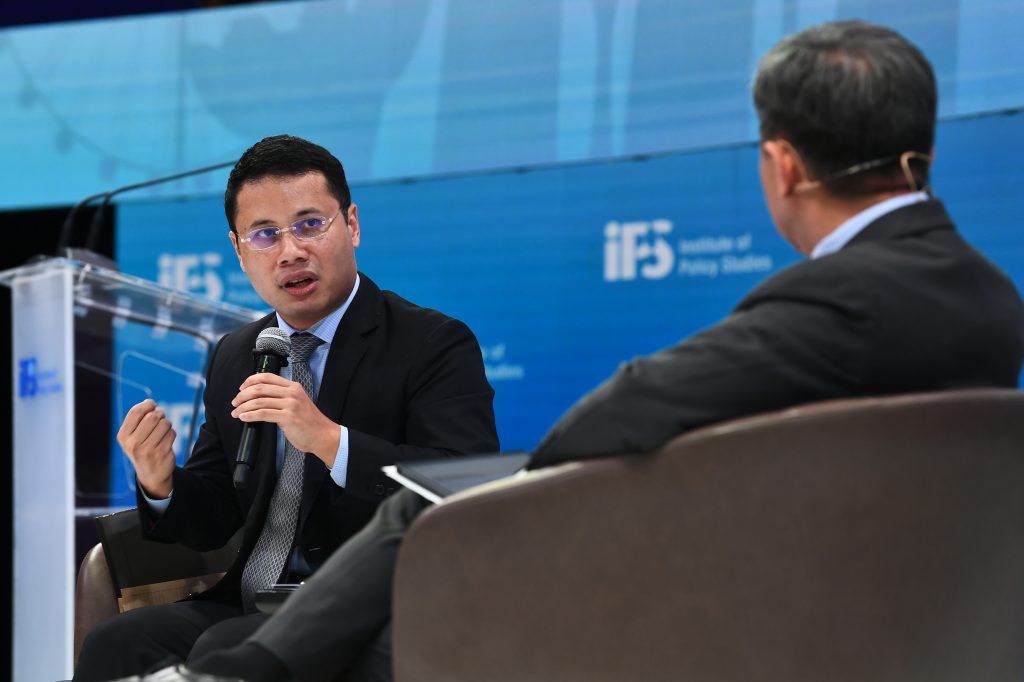
National Development Minister Desmond Lee, who answered this question at the conference, talked about singles and reassured her that housing policies would continue to evolve. But I wished he had addressed the point on LGBTQ families head-on and not skirted around it conspicuously.
It was a missed opportunity because the minister’s reply, if crafted tactfully, could have started a conversation among Singaporeans on how society should treat non-conventional families.
This Christian dialogue on LGBTQ issues showed how we could discuss a contentious topic politely when executed properly. Preferably ground-up and guided by a reliable and unbiased figure, like this, where Singaporeans decide the direction and outcome of the discussion.
There might not be answers from this dialogue but the ball has started rolling. “We often talk about each other, now we are talking to each other,” Imran adds.
* Names have been changed as the dialogue was held under Chatham House rules, which guarantees confidentiality to promote free discussion.






